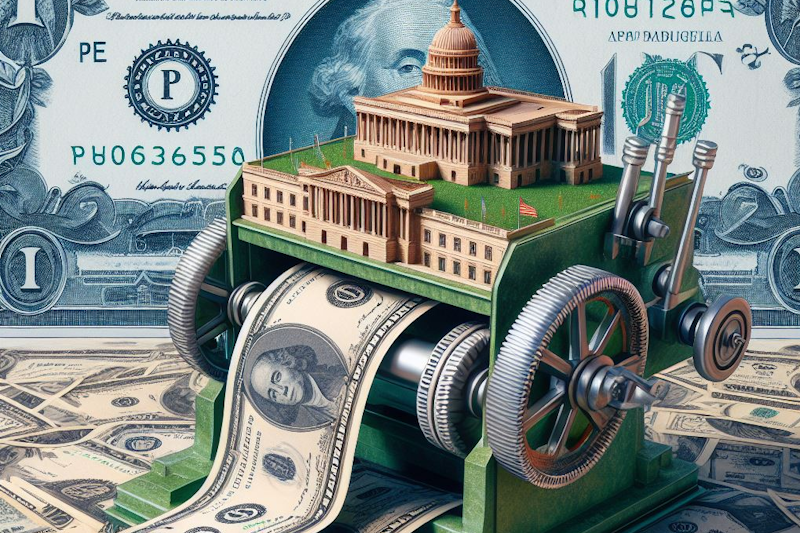My first year out of college was a grind.
Within four months of landing my first job in Kansas City as a loan processor, I was laid-off with 80 other hapless mortgage industry workers (thank you Federal Reserve).
A couple of months later I was in Chicago sharing a studio apartment with two other former fraternity brothers (one pull-out couch and another couch between us).
We all had jobs as runners at the CBOT getting paid $7.50 an hour for 30 hours a week. Certainly not enough to cover much in a big city. So, at the end of the day, I had gaps to fill.
One way was to show up at a trader’s desk at 4:30 AM to help him write his daily trade letter to clients. We analyzed Market Profile charts — called Steidlemayer charts at the time and inspiration for the Volume Profiles upon which I rely so heavily today. But that was a couple of hours a day, so I still came up short.
But since I had evenings and weekends free but nothing to spend, I did what I had to do…
We Didn’t Call It a Side Hustle
To make ends meet, I worked as a waiter and bouncer where I could.
Between various jobs — plus my “professional” job — I received 11 to 12 W-2s in 1995.
Even though I came out of college with degrees in both finance and economics, I knew nothing about markets. And my pay reflected that fact.
My education wasn’t a skill, and my family wasn’t exactly “connected.” So, working as a runner on the floor for peanuts was the path available to me. Filling the gaps with part-time jobs was what I did to make it work.
But here’s what I didn’t do.
The Freedom to Compete is a Feature, not a Bug
I didn’t appeal the government to force my employers to pay me a higher wage.
I didn’t write my congressmen describing my victimization at the hands of evil capitalists.
I didn’t decry the injustice of not getting paid a “living wage” — whatever that is.
I didn’t protest at the end of La Salle Street drawing attention to society’s failure at giving me the life to which I thought I was entitled.
I viewed freedom of choice and competition (what I would call capitalism) as a feature of good human society, not a bug. It was up to me to make my own way. Burdening government with fulfilling my needs burdened everyone. And were I not able to make what I wanted work in my life, it was still up to me to find another way.
Ultimately, I didn’t beg. Which is the only way to truly get what you want (assuming you don’t want to steal it from someone else).
Now, all of this may sound hard-hearted. But none of what I’ve said negates charity. That too is a choice.
Mandated charity, on the other hand, is not a choice. It’s also not charity because no one besides politicians and crony capitalists get what they really want.
But with both recession and inflation converging around the world, the beggars will soon get more of what they think they want.
Beggar Thy Neighbor
The beggars want the government to “do something” about energy prices while blocking all reasonable paths to more energy production.
The beggars demand that egregious energy company profits be taxed away.
The beggars celebrate the subsidized manufacture of microchips in the name of fighting inflation.
The beggars want sustainable energy handed to them while simultaneously demanding cheap oil.
In the U.K., the beggars have threatened to not pay their bills if the government doesn’t cap prices at a “fair level.”
These problems provide proof of the Spiraling Cost of Order I talked about nearly a year ago. And it was yesterday’s begging that left us with the inflationary costs of today.
Which, of course, has everyone begging for a solution.
Unfortunately, there is no politically acceptable solution. Which, for the moment, leaves the Federal Reserve with no choice but the unacceptable one.
Careful What You Wish For
Right now, the Fed is talking tough on inflation. And they can’t change their tune within the next few months without losing what little remains of their credibility.
But as soon as the pain of higher rates gets to be too much of a grind, the beggars will end up with more of what they want than they ever thought possible.
An economy and stock market made frail by 15 years of easy money can’t survive the inflationary cure. And the more damage done to the economy by the Fed’s current Hawkish posture (or, rather, the more economic weakness gets exposed by it), the more outrageous their efforts to stimulate what’s left of the economy must be.
Which is when, to paraphrase H.L. Mencken, the beggars will get what they want “good and hard.”
Centuries of government-controlled money have taught us that, when caught between austerity and profligacy, governments always choose the latter. Inflating away debt is always the politically expedient route.
So, ultimately, the Fed will pivot as the beggars demand more free money, fair wages, Universal Basic Income, or whatever other contradictory solutions help avoid the grind of making your own way during tough times.
Exactly how long the Fed plays at being hawkish on rates is a minor point. The major point is that the global economy is in the throes of a volatile mix of wants.
NATO and Russia want Ukraine. U.S. and China want Taiwan. This winter, much of Europe may want heat. ESG pushers may soon want another job. We’ll soon see which party Americans want to run Congress.
And, like always, the market doesn’t care what anyone wants.
Think Free. Be Free.
p.s. You can’t beg the market for money. But you can make it work for you. If it’s not, join my free Prosperity Pub Community in Telegram where I’m constantly sharing ways I make it work for me.



